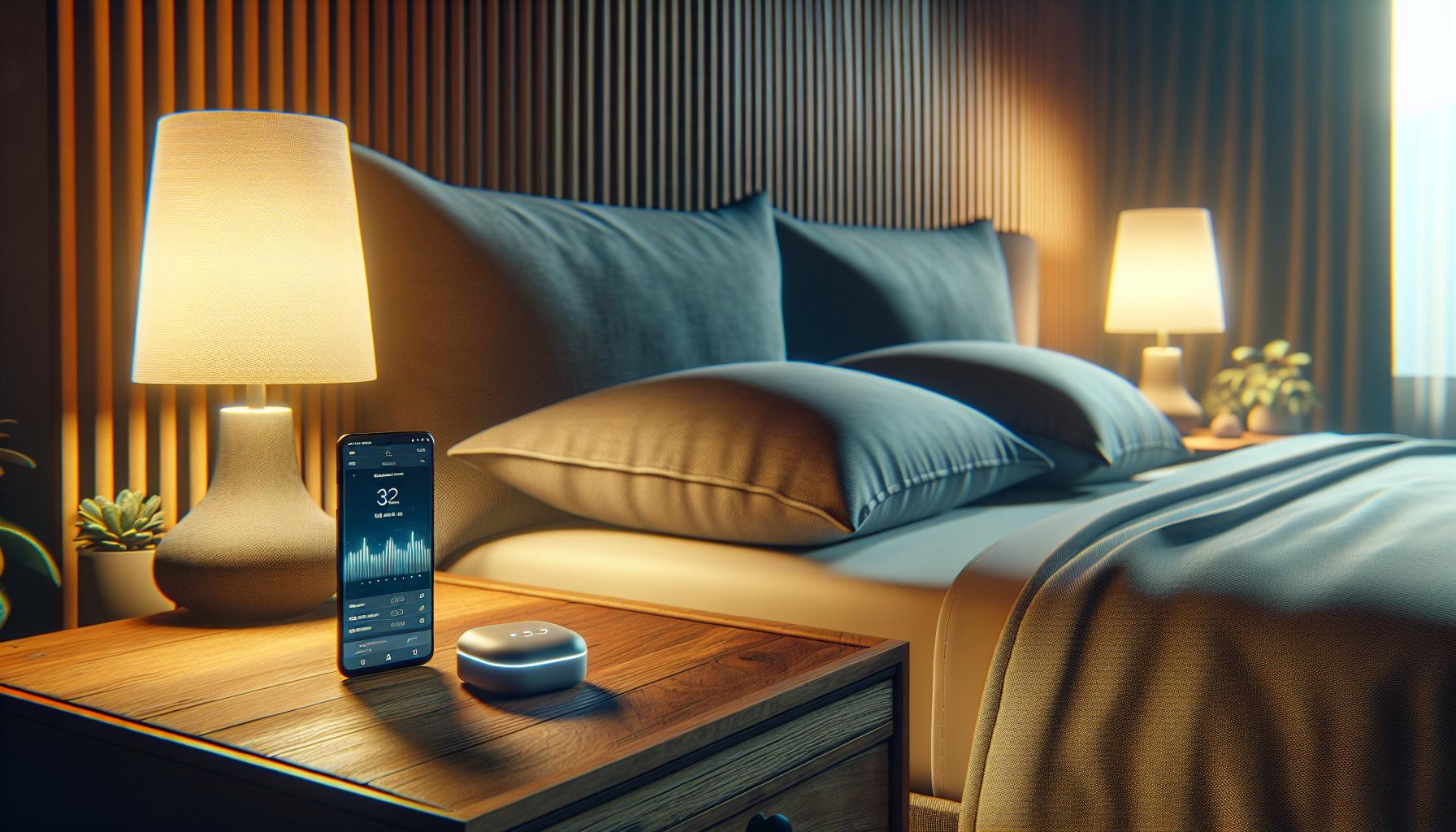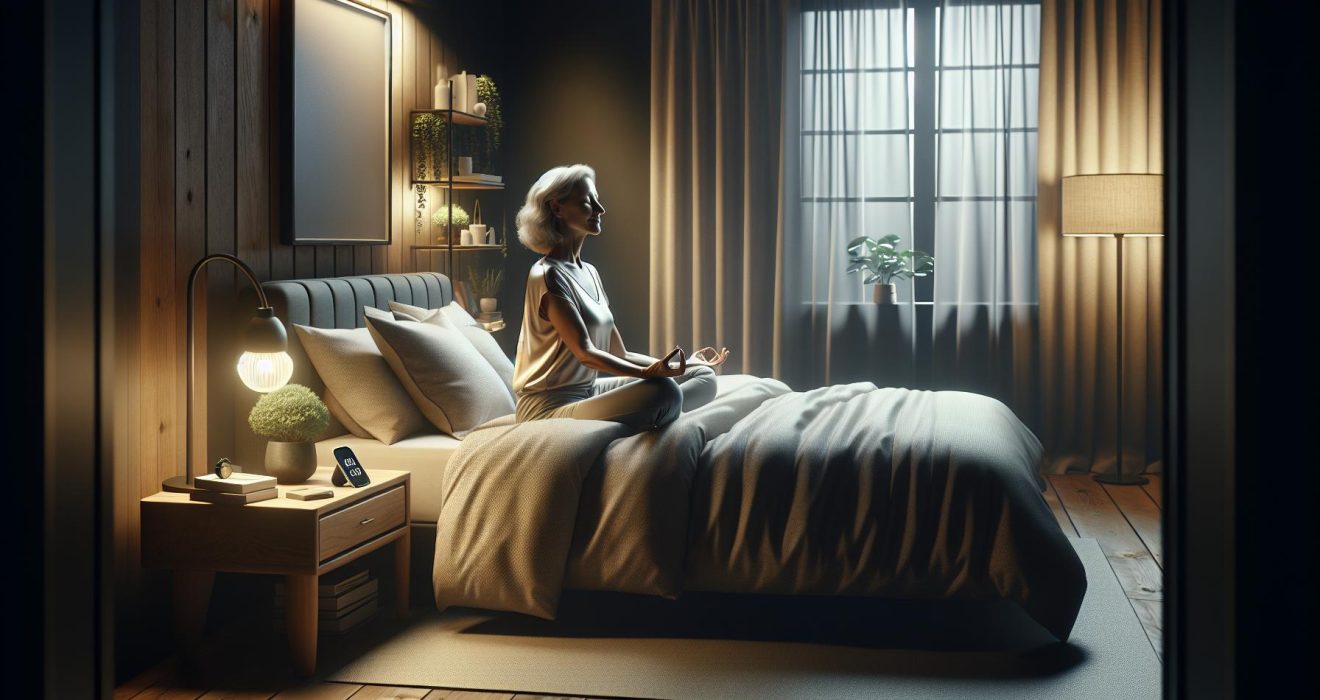Improve Sleep Quality to Boost Stress Resilience: Essential Tips
I’ve always believed that a good night’s sleep is like a magic potion for our well-being, especially when life throws its curveballs. But as I’ve grown older, I’ve noticed that getting that restorative slumber isn’t as easy as it used to be. Stress, a constant companion for many of us, often sneaks into our nights, stealing those precious hours of peace. So, I set out on a mission to uncover the secrets of enhancing sleep quality to bolster our resilience against stress.
In my journey, I discovered fascinating and simple strategies that felt almost like uncovering family recipes long hidden in an old, cherished cookbook. Each method holds the promise of transforming our nights from restless to restful. I’m eager to share these treasures, hoping they’ll help you embrace each morning with renewed spirit and strength. Join me as we explore these gentle, effective ways to invite tranquility into our nights, ensuring our days are as vibrant as they can be.
Understanding the Link Between Sleep Quality and Stress Resilience
After sharing my journey to crack the code on better sleep, let’s dive deeper. I’ve discovered that understanding how sleep quality and stress resilience are intertwined can be a game-changer. Here’s why it matters:
The Science Behind Sleep and Stress
Let’s break it down: sleep isn’t just “off time” for your brain. It’s a crucial period when your body repairs itself and your brain sorts the day’s information. During sleep, your brain also regulates chemicals like cortisol, the infamous stress hormone. If you’re cutting corners on your sleep, your body doesn’t get the chance to lower cortisol levels. Interestingly, research shows that increased sleep quality boosts the production of growth hormone, which helps mitigate stress effects. So, good sleep doesn’t just make you feel fresh; it builds your mental resilience.
How Poor Sleep Affects Your Stress Levels
Ever noticed how everything seems more overwhelming after a bad night’s sleep? There’s a reason for that. Lack of sleep amps up your brain’s reactivity to stress. It’s like turning up the volume on your worst fears. Studies suggest that sleep deprivation can enhance the part of your brain that’s primarily responsible for fear responses—the amygdala. That’s right, when you’re low on sleep, your brain is basically setting itself up to panic mode more easily. Additionally, with poor sleep, your body struggles to regulate emotions and cope with daily stressors efficiently. Hence, those restless nights don’t just make you cranky; they’re setting you up for a tougher battle against stress.
Key Methods to Improve Sleep Quality

Chasing better sleep? You’re not alone. I’ve dug through piles of sleep advice to find methods that genuinely work—not just fluff—but real-deal strategies that can transform your nighttime routine.
Establish a Consistent Sleep Schedule
Let’s talk about consistency. It might sound mundane, but hear me out. Locking in a consistent sleep schedule is like programming your body’s internal clock to automatically wind down and wake up. Pretty neat, right? Aim to hit the sack and wake up at the same time every day—yes, even on weekends. I’ve found this method not only helps me fall asleep quicker but also makes mornings less of a drag. Plus, it organizes your body’s ‘to-do list:’ from deepening sleep cycles to timing that sweet hormone release that keeps stress at bay.
Create a Restful Sleeping Environment
Next up, let’s turn your bedroom into a sleep sanctuary. I’m talking about minimal noise, just-right darkness, and a cool temperature—around 65 degrees Fahrenheit works magic for most people. Invest in some blackout curtains and maybe a white noise machine if your neighbor loves late-night karaoke. Also, let’s not forget that your bed should be a cloud—figuratively. A good quality mattress and pillows can make a world of difference. It’s like creating the ultimate nest where the worries of the world melt away as soon as you dive in.
Limit Exposure to Blue Light Before Bed
Here’s the techy part: dial down the blue light. Ever noticed how you feel wired after scrolling through your phone right before bed? That’s blue light for you, tricking your brain into thinking it’s still daytime. About an hour before bed, I switch off my gadgets or use a blue light filter. It’s a game-changer. Instead of letting my phone mess with my sleep hormones, I grab a book. Trust me, swapping screen time for storytime can lead you to la-la land much faster.
By sticking to these strategies, I’ve not only polished my sleep quality but also boosted my resilience against stress. Give them a whirl, and let’s snag those ZZZs!
Lifestyle Changes to Enhance Sleep and Reduce Stress

When tossing and turning at night starts feeling like a bad hobby, it’s time to tweak our daily routines. Here’s how turning our habits on their head can lead to those sweet Zzzs and less frazzled days.
Regular Physical Activity
Exercise isn’t just for looking good – it’s a game-changer when you’re aiming for solid shut-eye. Pounding the pavement or hitting the gym not only tires you out physically but mentally stabilizes your mood and chills you out. Aim for at least 150 minutes of moderate aerobic activity or 75 minutes of vigorous activity each week, or mix it up based on personal enthusiasm levels. Activities like walking, cycling, or dancing can promote quicker sleep onset and combat insomnia, especially if done earlier in the day. Just avoid intense workouts close to bedtime, unless you fancy being wide awake at midnight.
Balanced Diet and Hydration
Let’s dig into the nitty-gritty of eating right to sleep tight. A diet rich in fruits, vegetables, lean proteins, and whole grains isn’t just good for the waistline but also for nighttime rest. Foods like cherries, nuts, and oats tickle our brains with melatonin, the chemical sleepyhead signal, while fatty fish hooks us up with vitamin D and omega-3s, iconic for serotonin production and sleep regulation. And hydration? It’s a biggie. Dehydration can make you more tired during the day but interrupt sleep at night. Skol to around eight 8-ounce glasses of water a day, but taper off before bed to dodge those annoying bathroom sprints.
Mindfulness and Relaxation Techniques
Consider this your chill pill without the pill. Mindfulness and relaxation techniques like meditation, deep breathing exercises, or gentle yoga can slow down this non-stop merry-go-round we call a day. Engaging in these practices daily calms the mind, sweeps away the buzz of anxiety, and sets the stage for a peaceful slumber. Just 10 minutes of mindfulness or guided imagery before bed can help shift gears from high-speed internet thoughts to offline mode. Drop a favorite relaxation track, dim the lights, and let your day melt away. Trust me, your brain will thank you, and you’ll be sleeping like a log in no time.
Tools and Technologies to Aid in Better Sleep

Exploring the right tools and technologies can drastically improve your sleep quality. Let’s dive into some gadgets and apps that can make a world of difference.
Sleep Tracking Devices
Sleep tracking devices have become my nightstand essentials, akin to a trusty alarm clock but smarter! Devices like Fitbit, Withings, and Garmin don’t just track your steps during the day but also monitor your sleep stages at night. They provide insights into how much time you spend in light, deep, and REM sleep, offering clues on what might be disrupting your slumber.
Ever wonder why some mornings you wake up feeling like you’ve wrestled a bear? These gadgets will tell you if it’s because you’re not getting enough deep sleep. They also track nocturnal interruptions (yes, even those pesky bathroom trips!) and overall sleep duration. Armed with this data, you can adjust your sleeping habits, such as tweaking your diet or exercise routine, to help capture that elusive quality sleep.
Using these devices also allows you to set smart alarms, waking you up during the lightest part of your sleep cycle, which means you get to say goodbye to being jolted awake by a blaring alarm. That’s a gentler start to the day, guaranteeing you don’t feel like a zombie from “The Walking Dead.”
Apps for Sleep Improvement and Stress Management
Navigating the world of apps for better sleep and reduced stress is like finding hidden gems in a sea of digital clutter. Apps like Calm and Headspace have been game changers for me. They offer guided meditations, soothing music, and sleep stories narrated by voices so soothing, you’ll think you’re being tucked in by Morgan Freeman!
Think of these apps as your personalized stress and sleep consultants. They teach breathing techniques that help calm your mind faster than you can say “spa day.” Regular use helps in managing stress, which in turn promotes better sleep. This isn’t just spiritual mumbo jumbo; it’s backed by science—deep breathing can increase the supply of oxygen to your brain and promote a state of calmness.
I also love the bedtime reminder feature, which nudges you to start winding down. It’s like having a personal coach who tells you it’s time to put the phone away and relax. By integrating such apps into your nightly routine, your smartphone, often a culprit in keeping you awake, transforms into a tool for better sleep.
Conclusion
I’ve shared my journey and the strategies that have significantly improved my sleep and stress resilience. It’s my hope that these insights inspire you to take action towards better sleep. Remember that small changes often lead to big results. Whether it’s adjusting your sleep environment, incorporating regular exercise, or using technology wisely your efforts can lead to more restful nights and resilient days. Here’s to achieving the restorative sleep we all deserve and the vibrant health that comes with it!

